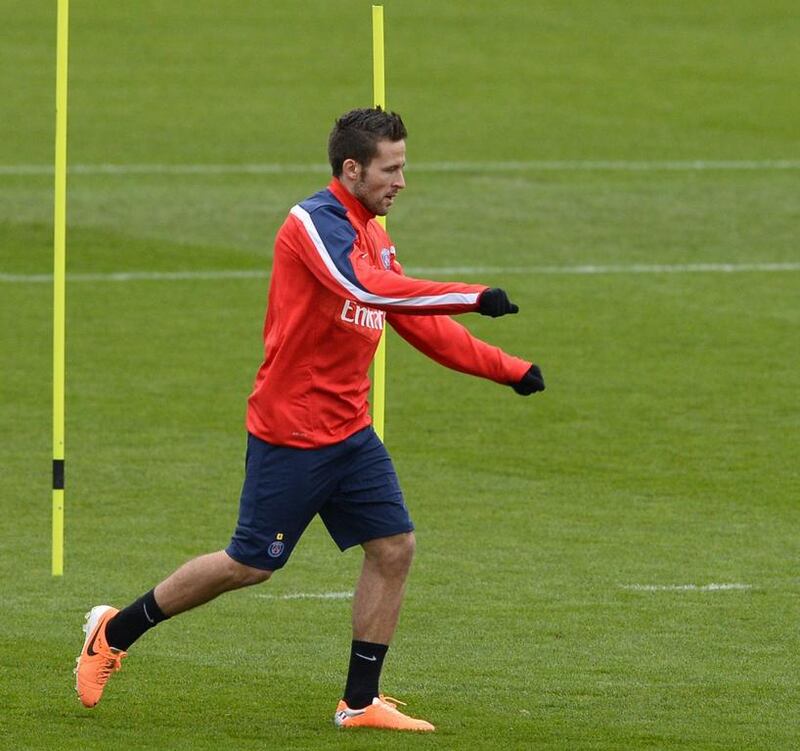Derbies often feel they have huge consequences. Not this one. Newcastle United kick off Saturday’s Tyne-Wear clash in eighth place.
Unless they win by seven goals, which they have never done in their previous 148 games against Sunderland, they will end it in eighth place, too.
Indeed, unless Southampton improve considerably, Tottenham Hotspur or Everton regress or Manchester United plunge into crisis, the probability is that they will complete the campaign in eighth.
Newcastle being Newcastle, they may take a scenic route that includes defeats in the more winnable games and victories against some of the elite sides yet, as manager Alan Pardew has an eight-year contract, Newcastle have dual cases to be named the most stable club in the Premier League.
However, they are both standing still and at a crossroads. The question for Newcastle, beyond a lengthy stay in eighth place, is simple: where do they go now?
Victories over Chelsea and Manchester United indicated that theirs was a team with unusual ability. Yet the key lies in the use of the past tense.
Yohan Cabaye had illuminated Newcastle’s season. Pardew configured his team around the creative Frenchman.
Cabaye, a beautiful striker of a ball, had responded by becoming prolific. And then, in one of the transfer window’s least surprising switches, he became a Paris Saint-Germain player.
Pardew’s recent gloom betrayed his realisation his finest technician was going. Given Arsenal’s August interest in Cabaye and the arrival of a bid from France’s most wealthy and glamorous club, it felt inevitable.
Three years after Andy Carroll exited Newcastle in an earlier January window, it confirmed that Mike Ashley’s willingness to sell at the right price remains a staple of his ownership, whether of sports stores or football clubs.
Cabaye’s departure was all the more predictable after director of football Joe Kinnear, displaying his uncanny ability to sound stupid, had said: “I will not let any player leave Newcastle United in this transfer window.”
Kinnear, with his awkward attempts to sign, barely allowed any through the entrance in the summer. It was a reason why Newcastle began the season under a black cloud.
Their subsequent progress was powered by the goals of the borrowed Loic Remy, the one acquisition, but owed much, indirectly, to Carroll’s move. Improbable as it still sounds, he commanded a fee of £35 million (Dh311.5m).
Broadly speaking, that paid for Cabaye (a bargain at £4.3m), and Davide Santon, Mathieu Debuchy, Vurnon Anita, Yoan Gouffran and Moussa Sissoko, all stalwarts of the current side, in earlier windows plus Remy’s loan fee.
It meant Newcastle, once a byword for wasting money on ageing Brits, have become widely admired for their financial acumen.
Chief scout Graham Carr’s ability to unearth under-priced talents in France made them the envy of many a mid-table team.
Men whose values have increased exponentially since they were signed have long represented a potential boost to the balance sheet and the £7m Demba Ba, who had a release clause in his contract, was the biggest sale since Carroll.
Yet Ashley did not become a billionaire by allowing assets to depreciate and the 28-year-old Cabaye was sold before his value could go down.
The replacement they wanted, though Lyon refused to sell Clement Grenier, is five years younger and decidedly cheaper.
It has the makings of a fine financial model. Yet it prompts the question if Ashley is running a business or a club with the aim of climbing the table.
The two are not mutually exclusive, of course, and previous regimes at St James’ Park have been guilty of kamikaze spending.
England’s great institutional clubs, a category that includes Newcastle, finds itself drowning in debt. Under Ashley, that will not happen.
Yet the immediate concern is that Newcastle, who have lost their last two derbies, face Sunderland shorn of their two likeliest scorers, the sold Cabaye and the suspended Remy.
The January striking signing, the borrowed Dutchman Luuk de Jong, struggled to get in the Borussia Monchengladbach side.
That does not necessarily preclude him from becoming the next example of Newcastle’s eye for a deal yet the fans can be forgiven if few see him as the scourge of Sunderland.
Rather, it suggests their aim is to be eighth forever, finding undervalued gems and selling them on to bigger spenders, preferring prudence to aspiration.
sports@thenational.ae






